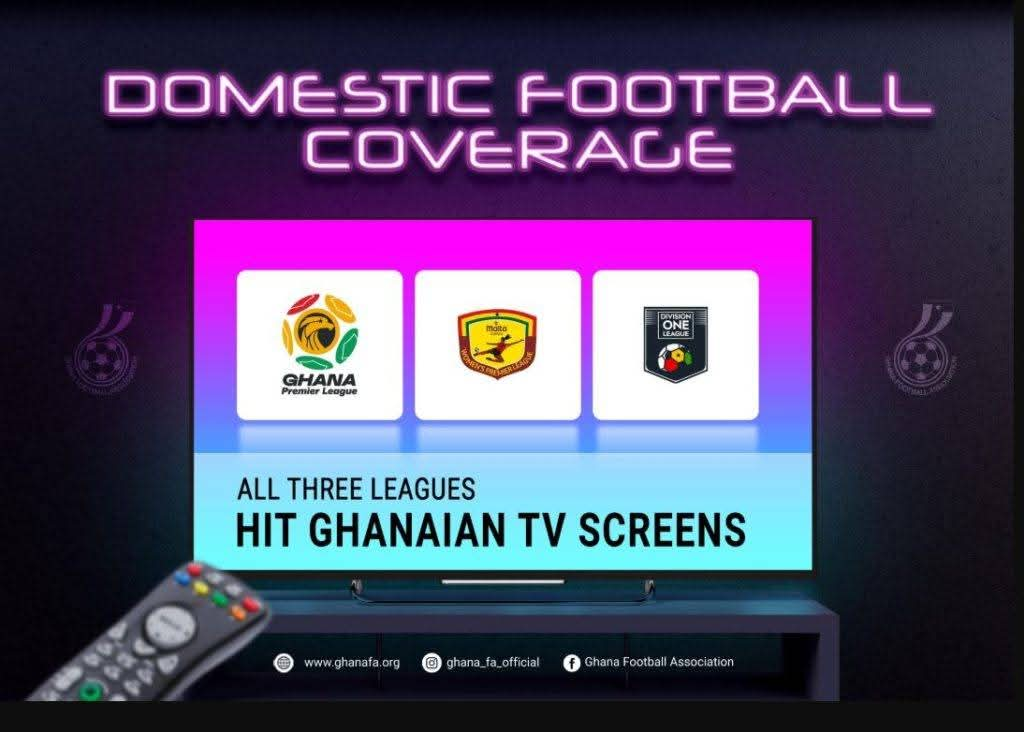For decades, Ghanaian football has survived on raw passion, but without the structure to monetise and sustain that passion. Our leagues have been fuelled by loyalty, not systems. Now, with the Ghana Football Association’s new broadcasting deal, the game stands at a make-or-break moment
. This visibility could be the spark that revives our football, or just another missed opportunity.
The cameras are finally on us — but exposure alone does not guarantee progress. The bigger question is: how do we turn visibility into value? How do we ensure that the Ghana Premier League, Division One, and Women’s Premier League become not just televised competitions, but full experiences that attract sponsors, fill stadiums, and inspire the next generation?
This is an open call to the Ghana Football Association and the Ministry of Sports and Recreation : football must now be packaged as a cultural, social, and commercial product. Investors, fans, and players must find in it not just games, but a story worth buying into.
Building a Stadium Experience
Television brings the game into homes, but the soul of football lives in the stadium. Empty stands drain energy from the product. Matchdays must be reimagined beyond ninety minutes of play. Think pre-match fan zones with music, food, merchandise, and interactive activities. Families should feel that stadiums are safe, fun, and welcoming. With better security, affordable tickets, halftime entertainment, and proper seating, every game can become a social event people look forward to — not just a sporting fixture.
Professional Marketing and Storytelling
Football is not only about goals; it is about dreams, heroes, and rivalries. Every district has a football hero; every player has a story. This is what sells. Clubs must adopt consistent branding — sleek graphics, vibrant social media, and behind-the-scenes content that humanises players. Rivalries should be packaged as spectacles, amplified by media partnerships.
As Abedi Pele once said, “Football is a game of passion, but also a platform of opportunity.” If we fail to tell our own stories, we hand over the narrative to others. Ghanaian football must take control of its voice, turning passion into a product.
Making Sponsorship Attractive
Sponsors do not invest in passion alone; they invest in numbers. The GFA must provide viewership data, social media reach, and fan engagement metrics. Without evidence, sponsors will not bite. With broadcasting in place, the opportunity is here to offer brands measurable visibility: digital campaigns, branded segments during live matches, community activations, and co-created fan experiences. Ghana football must prove it is a gateway to a passionate, growing audience.
Elevating Youth and Women’s Football
The Women’s Premier League and Division One cannot remain afterthoughts. Visibility gives us a chance to project women athletes and grassroots players as role models. Derbies and tournaments can be turned into community festivals that blend sport with education, health, and empowerment. Corporate Ghana will find here not just visibility, but social impact — the kind that lasts.
Learning from Others
We do not need to reinvent the wheel. Tanzania’s Simba SC and Yanga SC have shown how African clubs can monetise loyalty through branding, merchandising, and fan engagement. South Africa’s Premier Soccer League has become a commercial powerhouse by packaging football as entertainment, not just sport. Ghana, with equal or greater passion, can do the same — if we choose structure over improvisation.
As FIFA President Gianni Infantino recently said, “Africa has the greatest football potential in the world.” But potential means nothing without execution.
Revenue Beyond the Game
Broadcasting and ticket sales alone cannot sustain clubs. Merchandise, digital memberships, behind-the-scenes subscriptions, and tourism tie-ins must be part of the ecosystem. Imagine a weekend where fans not only watch a game but also experience Ghanaian culture, food, and music, making football a tourism product as much as a sport.
The broadcasting deal is not an end; it is a window of opportunity. But windows close. The question is whether the GFA and the Ministry will turn that window into a door of opportunity for our game.
We owe it to the next generation of footballers and fans to build a league that is more than survival. A league that thrives, inspires, and competes with the best.
Ghanaian football has been given visibility. What we do with it will define not just this moment, but the future of our game. If not now, when?


